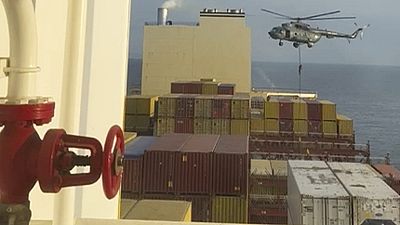By Karin Strohecker
LONDON (Reuters) - Iceland may soon reclaim a place on the investment stage through inclusion in global equity indexes, but with pricey stocks, a fading economy and reforms done and dusted, fund managers are not rushing back there.
Iceland is already on course to join index provider FTSE Russell's Frontier Market benchmark in September and rival MSCI said late on Tuesday that it might add its Icelandic stock index to its Frontier Market (FM) equity benchmarks.
Investors' reaction to the index announcement was muted however, with Reykjavik's main equity index slipping 0.6% on Wednesday -- more than the 0.2% decline in MSCI's FM 100 index of the largest and most liquid frontier market stocks. Icelandic stocks have risen broadly in line with the MSCI FM 100 index year-to-date.
The North Atlantic island has almost fully emerged from the 2008 financial crisis that led to the collapse of its three largest banks and the introduction of capital controls.
Capital curbs were finally lifted in 2017 and reserves have been rebuilt, helping stabilise the economy.
"All the good things have happened," said Andrew Brudenell, frontier markets portfolio manager at Ashmore Group. He is no rush to add Icelandic stocks which deliver "very low returns" and whose businesses are already overcapitalised.
"This is all very nice, but we like structural change, we needed to be in this three years ago and we couldn't get in because of capital controls ... but now it is all priced in."
Iceland's $25 billion economy has a history of spectacular booms and busts, having gone through over 20 financial crisis since 1875.
Its main equity index includes 17 stocks, though MSCI's Iceland index, filtering out smaller and less liquid stocks, lists just 12 constituents. Of those, only 11 are potentially large and liquid enough to join MSCI's frontier markets index, the firm said in its consultation document.
Iceland's MSCI index is expected to have a market capitalisation of $2.5 billion once in the index, nearly matching Lebanon and Bangladesh. The country's weighting in the index would be 3.5%, MSCI said.
Equity indexes in frontier markets -- a subset of often riskier and less liquid emerging markets -- are followed by less passive money than their big emerging market peers, meaning an index inclusion has less pulling power. Only a fraction of the estimated $1.5 trillion (1.18 trillion pounds) that are benchmarked against MSCI emerging market indexes are following frontier market benchmarks.
(Graphic: Iceland boom and bust link: https://tmsnrt.rs/2FzjEOO).
Iceland's economy is expected to contract by 0.4% in 2019, according to the central bank, which slashed interest rates to the lowest since 2011 on Wednesday. It cited a deeper than expected contraction in tourism, a main source of revenue, following the collapse in March of low-cost airline WOW Air.
"Across frontier markets, you often expect to be benefiting from the reform process as it is going on," said Julian Mayo at Fiera Capital. "Can you foresee very, very rapid growth in the economy? The answer is not really."
Liquidity is another challenge. Apart from holding company Marel, active in meat processing and other food sector activities, and lender Arion Banki, few stocks are liquid enough to trade in or out of, fund managers said.
MSCI will consult with investors over Iceland's inclusion until end-October and announce its decision in November with a view to proceeding in one step at the May 2020 semi-annual index review, the provider said in its consultation document.
(Reporting by Karin Strohecker; Editing by Catherine Evans)



